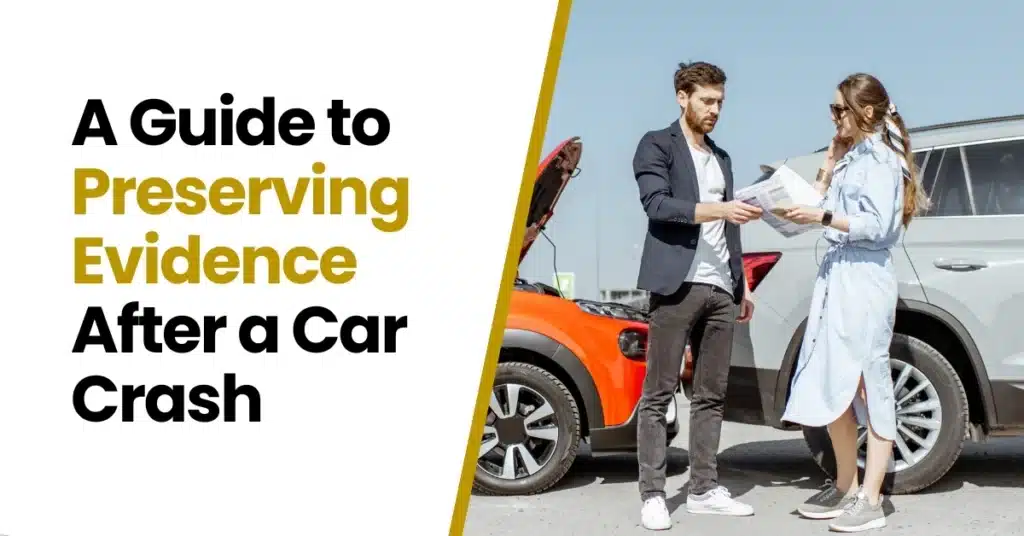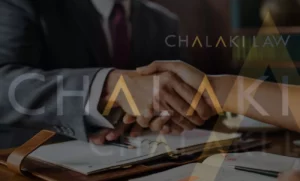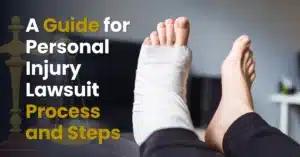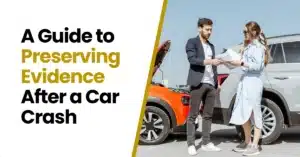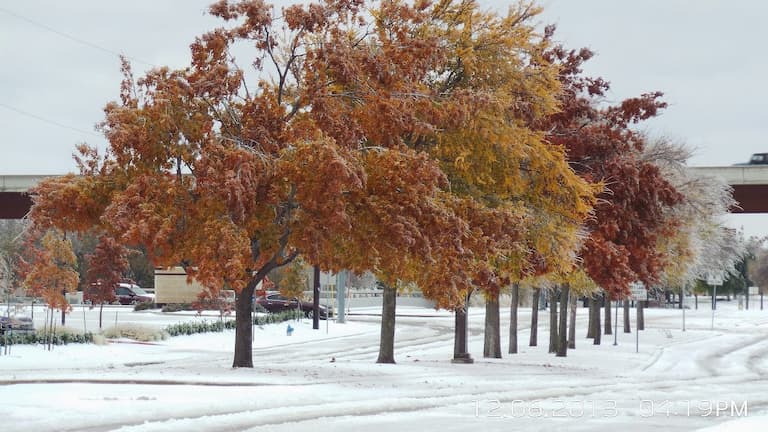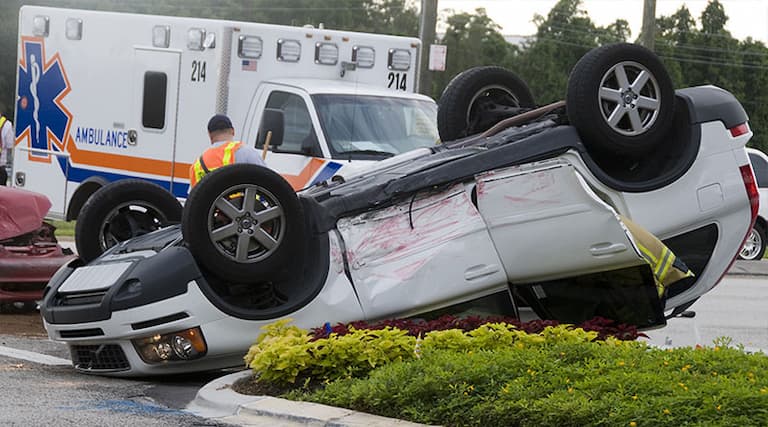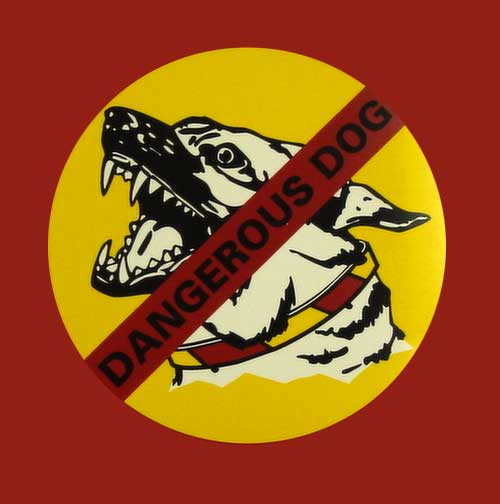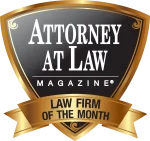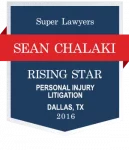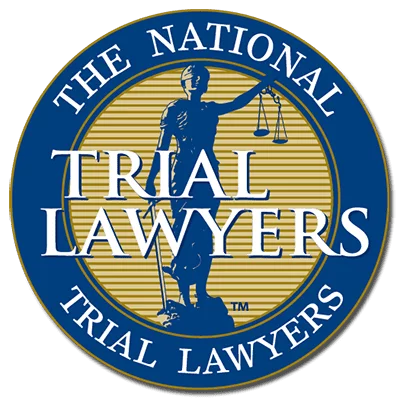Car accidents are an awful reality everywhere. In Texas, the high population density and heavy traffic on Texas roadways contribute to an increased risk of accidents. Whether you were in a tiny fender bender or a more major crash, it is critical to carefully document the occurrence. Collecting evidence after a car crash properly will assist preserve your rights and guarantee that you obtain appropriate compensation for any damage or injury caused.
Gathering proof of car accident, fortunately, is not difficult provided you know what measures to take. Victims of car accidents can ensure that their best interests are protected at every stage of their case by anticipating these following actions and acting quickly.
Immediate Post-Crash Steps
After a car crash, it is important to take immediate action to ensure the safety of everyone involved and minimize further damage. These steps are crucial in order to protect yourself and others, gather necessary information for insurance purposes, and potentially provide evidence for any legal proceedings that may follow.
- Go to a safe location and call the police immediately.
- Get medical assistance right away or at the scene.
- Gather information and proof at the scene, such as the contact and driver information of the other party. Never discuss anything other than the facts, and never admit to being wrong. Avoid speaking with a third party insurance company before consulting with your injury law attorney.
- Gather information of all witnesses.
- Snap pictures of the scene, both vehicles, license plate numbers, DOT numbers for 18-wheelers (It’s usually on the door), videos of the scene, crash debris, skit marks and so on.
- Discuss your options with a Dallas automobile accident attorney.
Types of Evidence to Collect
Each car accident possesses its own unique circumstances. Despite this fact, all car collisions have two primary points to prove to have a case: first is the liability of the driver at fault, and second is the extent of your injuries or damages. So what evidence can prove these two? Here is a list of the different evidence needed for a personal injury claim that you can collect.
Evidence that proves liability:
- Police reports – provide detailed accounts of the incident, including witness statements and any evidence collected at the scene. Additionally, surveillance footage from nearby establishments may capture the events leading up to the incident, further supporting liability claims.
- Witness statements – can provide firsthand accounts of the incident and help establish who was at fault. These statements can include crucial details about the actions and behavior of those involved, providing valuable evidence for liability claims.
- Your recorded statement – Do not provide a recorded statement to any insurance company until you have discussed the matter with an attorney.
Evidence that proves your damages:
- Medical bills and records – documents such as car accident discharge papers can serve as crucial evidence in demonstrating the extent of your injuries and the resulting financial burden. These documents can provide a clear picture of the medical treatments you have received, the costs incurred, and any ongoing or future medical needs that may arise as a result of the incident.
- Lost income statements- can also be important evidence to demonstrate the financial impact of your injuries. These statements can show the wages or earnings you have lost due to your inability to work as a result of the incident.
- Your testimony at Trial- as the injured party, can also be a crucial piece of evidence in establishing the extent of your pain and suffering, as well as the impact it has had on your daily life. By sharing your personal experiences and struggles, you can help paint a comprehensive picture of the physical, emotional, and financial toll the incident has taken on you.
- Professionals’ testimony- from medical professionals can further support your claims by providing objective assessments of your injuries and their long-term effects.
Detailed Steps for Collecting Each Type of Evidence
Evidence that proves liability can be collected through various methods. One way to gather evidence as proof of an accident is through eyewitness testimonies. Interviewing individuals who witnessed the incident can provide valuable information about who was at fault. Additionally, collecting photographic or video evidence of the scene can help establish liability by capturing the sequence of events and any contributing factors. Finally, obtaining opinions or reports can further strengthen the case by providing professional analysis and conclusions regarding the liability aspect.
When collecting evidence that proves your damages, remember these following steps. First, gather medical records and bills that document any injuries sustained as a result of the incident. This can include doctors’ notes, hospital invoices, and prescription receipts. Second, collect any documentation related to property damage, such as repair estimates or receipts for damaged belongings. This evidence will help quantify the financial losses suffered due to the incident. Additionally, it is important to gather any evidence of lost wages or income if the incident caused you to miss work or affected your ability to earn a living. This can include pay stubs, tax returns, or statements from your employer. Lastly, if there were any witnesses to the incident, try to obtain their contact information and statements as they may provide valuable testimony to support your claim.
Common Mistakes to Avoid
When gathering evidence after a car accident, it is important to avoid common mistakes that could potentially compromise the strength of your case. One common mistake to avoid is failing to document the accident scene thoroughly. This includes taking photographs of the vehicles involved, any visible injuries, and any skid marks or debris on the road. Additionally, it is crucial to avoid relying solely on your memory for details and instead gather witness statements or contact information from anyone who may have seen the accident occur.
Another mistake to avoid is failing to seek immediate medical attention. Even if you believe your injuries are minor, it is important to have a medical professional evaluate you using a car accident questionnaire and other tests for any hidden or underlying injuries. Delaying medical treatment can not only jeopardize your health but also weaken your case if you decide to pursue legal action. Furthermore, it is crucial to avoid discussing the accident or your injuries on social media platforms. Anything you say online can be used against you in court, so it is best to refrain from posting anything related to the accident until your case is resolved.
Legal Considerations
When gathering evidence after a car accident, there are several legal considerations that need to be taken into account. Firstly, it is important to ensure that the evidence is collected in a lawful manner, without trespassing or violating anyone’s privacy rights. Additionally, the chain of custody of the evidence needs to be properly maintained to ensure its admissibility in court. Lastly, it is crucial to be aware of any specific laws or regulations governing the collection of evidence in the jurisdiction where the accident occurred. Overall, understanding and adhering to these legal considerations is essential to effectively gather and present evidence in a car accident case.
Hiring an Attorney
Hiring an attorney when gathering evidence after a car accident is crucial for several reasons. Firstly, an attorney has the experience and knowledge to identify and collect the necessary evidence that can strengthen your case. They are familiar with the legal process and can ensure that all relevant evidence is properly obtained and preserved. Additionally, an attorney can effectively communicate with insurance companies and opposing parties on your behalf, ensuring that your rights are protected and that you receive fair compensation for your injuries and damages. Overall, hiring an attorney can significantly increase your chances of a successful outcome in your car accident case.
FAQ
Yes, car accidents typically go on your driving record, especially if you were at fault. They can affect your insurance rates and driving history.
You generally can’t remove a car accident from your record if it’s accurately reported. However, over time, its impact on your insurance rates may diminish.
To find a witness for a car accident, try to gather contact information from anyone who saw the incident. This may include their name, phone number, and any other relevant details. You can also check for surveillance cameras in the area.
In a car accident, gather information such as driver details (name, license number), vehicle information (license plate, make/model), insurance details, contact information of all parties involved, and photos or videos of the accident scene, vehicle damage, and any injuries. Additionally, note the date, time, and location of the accident.

